|
In celebration of the Fourth General Congress of the Union of the Catholic Apostolate, the Catholic Apostolate Center will share weekly homilies from the Congress. Homily for July 17, 2024 “Guide us your people, so that we may contribute to the building of a new society, at the service of the life of every person, of hope and concrete solidarity with all in different cultures” (From the Prayer for the fourth UAC General Congress) Dear Brothers and Sisters of the Pallottine Family,
Once again, we have taken another theme for our reflection from the Prayer for the fourth UAC General Congress: “Guide us your people, so that we may contribute to the building of a new society, at the service of the life of every person, of hope and concrete solidarity with all in different cultures.” As Christians, as members of the Union of Catholic Apostolate, we are invited to build a better world. We wish to be in service of life and want to work for the integral development of every human being created in God’s own image and likeness. The members of the Union of Catholic Apostolate have an immense responsibility to be missionary disciples to work hard to build up societies and communities built on the values of the Gospel. In his book “Let us Dream. The Path to a Better Future,” written during the dark days of Covid-19 (2020), Pope Francis speaks about his dream of building a better future for humanity. The Holy Father points out the absolute importance of authentic human connectedness in every sphere of life. He believes that it is time to restore an ethics of fraternity and solidarity, regenerating the bonds of trust and belonging among people, nations and cultures. The Pope also points out four elements that can block the action of the Holy Spirit – narcissism, discouragement, pessimism and indifference. The authentic manifestations of an Easter people are joy and renewed hope. We can be discouraged very often by ongoing conflicts and violence. However, the people who changed the world are those who kindled the candle of hope and courage and not those who surrender themselves to pessimism and defeatism. Our efforts as members of the Union of Catholic Apostolate to build up a better world should not be seen as only a socio-political action. One of the modern saints of our times who set in motion a revolution of fraternal charity was the tiny woman, Saint Mother Teresa. She had faith as the foundation, hope as its driving force, and charity as its goal. She was convinced from the beginning of her work with the poor that it was God’s work that she was doing, and whatever she did for anyone she did it for Jesus. It was based on faith because she was feeding Jesus in the hungry. Every human being is a child of God, to be respected and loved as such. Each human being is an embodiment of God’s love, no matter where he comes from or what religion he belongs to. What is essential to us is our common brotherhood in the one and only Fatherhood of God. St. Vincent Pallotti too had seen the hungry Christ, the thirsty Christ, the naked Christ, the homeless Christ, the sick and imprisoned Christ everywhere (cf. Matthew 25:31-36). For Pallotti, it was the continuation of the mission of compassion, the salvific work of Jesus. That was why he prayed so ardently: “I would like to become food to feed the hungry, clothing to cover the naked, drink to quench the thirsty….” (OOCCX, 115). We are blessed to have today the presence of the participants of the Central Assembly of the Pallottine Missionary Sisters. These are members of the General Council, the Provincial Superiors and delegates from all the Provinces, Regions and Delegatures of the Congregation. Recently, I received a video from Sr. Cecile, the Principal of the Pallottine School at Masaka, Tanzania. We could see the beautiful children dressed up in their school uniform. We could also see how the entire campus was maintained with great attention for the protection of our Common Home. Those who were involved in developing the School will know how much sacrifices were made in establishing the School and in offering quality education to hundreds of children. We can have many examples of such apostolic activities done by our priests, sisters and lay members around the world. In our efforts to build up a better world, particular attention needs to be given to children and vulnerable persons. We heard in today’s Gospel: “At that time Jesus exclaimed, ‘I bless you, Father, Lord of heaven and of earth, for hiding these things from the learned and the clever and revealing them to little children. Yes, Father, for that is what it pleased you to do.” (Matthew 11:25-26) These words show the unique place the little children enjoy before God and hence we need to care for them and protect them. Giving them good education brings great rewards. Today we celebrate the memory of Blessed Elizabeth Sanna, the spiritual daughter of our Founder. This handicapped mother who was outstanding in fraternal charity and holiness of life reminds us of all the vulnerable persons around the world and who need particular attention. Recently the Dicastery for Laity, Family and Life came out with a small document called “An Unlimited Joy,” based on the contributions collected during the Synod Listening Session. The question was "In a Synodal Church in mission, how can the co-responsibility of the faithful with disabilities be fostered?” A response given to this question was: “First of all, it requires attentive listening and concrete commitment on the part of every ecclesial community. In the Synodal Church everyone listens to each other and it is necessary to give conscious and qualified attention to all the faithful, without exceptions, even to those who experience disabilities, but a proactive attitude is needed on the part of everyone. In other words, our active participation in the life of the Church requires the involvement of each and every one of us.” Dear Brothers and Sisters of the Pallottine Family, we have to listen to the cry of God’s people. The Union of Catholic Apostolate, through the active and responsible participation of all its members, must continue the saving and healing mission of Jesus. Matthew 25:31-46, on the last judgment, must challenge every member. The judgment will be made on the basis of concrete love given or denied to one of the least of our brothers and sisters because Jesus himself is present in each one of them. Amen. Fr. Jacob Nampudakam, S.A.C. UAC President
0 Comments
In celebration of the Fourth General Congress of the Union of the Catholic Apostolate, the Catholic Apostolate Center will share weekly homilies from the Congress. Holy Eucharistic Celebration in Preparation for the UAC General Congress Church of San Salvatore in Onda, Rome, June 19, 2024 Theme: “With Christ, our hope, we set out again together with joy and hope renewed.” Dear Brothers and Sisters of the Pallottine Family,
As we gather together to pray for the entire Pallotttine Family, and for the forthcoming UAC General Congress in particular, I wish to begin by sharing with you two quotations about the power of prayer. “Prayer is the place of refuge for every worry, a foundation for cheerfulness, a source of constant happiness, a protection against sadness,” said St. John Chrysostom. Pope Francis once said: “Our strength is prayer and the prayer of the humble person is the weakness of God. The Lord is weak only in this one sense. He is weak before the prayers of His people.” We are very busy with the preparations for the IV General Congress of the UAC scheduled to take place in Rome from 25th to 31st July 2024. Naturally, there are many practical things to do and some of us are really working hard for its successful conduct. However, we realize that the most powerful spiritual tool before us is prayer for the blessings of God for the Union and for the Congress in particular. Following the words of St. Chrysostom, and knowing that prayer is the place of refuge for every worry and the foundation for cheerfulness, we wish to celebrate the Holy Eucharist at the altar of St. Vincent on every Wednesday until the 24th July 2024, together with the entire Pallottine Family, and pray for the success of the General Congress. We pray that this international event may contribute to the life of the Union by creating the sense of communion among us and by producing good apostolic fruits for the Universal Church. Today we reflect on the main theme of the Congress itself: “With Christ, our hope, we set out again together with joy and hope renewed.” This is a theme chosen after a long process of discernment during the last General Coordination Council Meeting of the Union in 2022. The Biblical text that inspired the participants was the Emmaus experiences of the two disciples, as described by the Evangelist Luke (24: 13-35). The two disciples were running away from Jerusalem, totally disappointed and disillusioned after the death of Jesus. The Risen Lord came into their midst, walked with them, and explained the Scriptures about the true mission of the Messiah. Finally during the breaking of the Bread, they recognized the Risen Lord. They were filled with joy and a renewed hope and returned to Jerusalem to recount all that happened. They declared that Jesus was Risen Indeed. Their sadness turned into joy; their disillusionment turned into the Easter hope. Addressing the moderators and delegates of the Associations and Ecclesial Movements during the meeting on 13 June 2024, in which three of us from the Union also participated, Pope Francis spoke of three “synodal virtues that can derive from a spiritual conversion: thinking as God thinks, overcoming exclusiveness, and cultivating humility.” I share with you the thoughts of Pope Francis that can help us also to have the correct vision and spiritual attitudes within the UAC, leading to a renewed hope and a greater development within our Spiritual Family. The following are the thoughts of the Holy Father. First: thinking as God thinks. This is the primary interior change that is asked of us: to move beyond “merely human thought” to embrace the “thought of God.” Before making any decision, before starting any program, any apostolate, any mission within the Church, we should ask ourselves: what does God want from me, what does God want from us, at this moment, in this situation? Is what I envision, what we as a group have in mind, truly aligned with the “thought of God”? Let us remember that the Holy Spirit is the protagonist of the synodal journey, not we ourselves: he alone teaches us to listen to the voice of God, individually and as a Church. God is always greater than our ideas, greater than prevailing mindsets and the “ecclesial fashions” of the day, even the charism of our particular group or movement. Therefore, let us never presume that we are “in tune” with God: rather, let us continually strive to rise above ourselves and embrace God’s perspective, not that of men and women. This is the first great challenge. Thinking as God thinks. Second: overcoming exclusiveness. Please, let us be wary of the temptation of the “closed circle.” These are challenges for us: limiting ourselves to what our “circle” thinks, being convinced that what we do is right for everyone, and defending, perhaps inadvertently, positions, prerogatives, or the prestige of the “group.” Alternatively, we could also be impeded by the fear of losing our sense of belonging and identity by opening up to other people and differing viewpoints, which stems from failing to recognize diversity as an opportunity rather than a threat. These are “enclosures” in which we all risk imprisonment. Let us be attentive: our own group, our own spirituality are realities that help us journey with the People of God, but they are not privileges, for there is the danger of ending up imprisoned in these enclosures. Thirdly and finally: cultivating humility. Here we understand that the starting point of spiritual conversion must be humility, the gateway to all virtues. It saddens me when I encounter Christians who boast: because I am priest from this place, or because they are lay people from that place, because I am from this institution... This is a bad thing. Humility is the door, the beginning. It compels us to scrutinize our intentions: what do I really seek in my relationships with my brothers and sisters in faith? Why do I pursue certain initiatives within the Church? If we detect a hint of pride or arrogance within us, then let us ask for the grace to rediscover humility. Indeed, only the humble accomplish great things in the Church for they have a solid foundation in the love of God, which never fails, and therefore they do not seek further recognition. This phase of spiritual conversion is also fundamental for building a synodal Church: only the humble person esteems others and welcomes their contribution, advice, inner richness, bringing out not their own “I”, but the “we” of the community. It is the humble who safeguard communion in the Church, avoiding divisions, overcoming tensions, knowing how to set aside their own initiatives in order to contribute to joint projects. In serving, they find joy and not frustration or resentment. Living synodality, at every level, is truly impossible without humility. I want to say once again, in order to emphasize the role of ecclesial movements: ecclesial movements are for service, not for ourselves. Ecclesial movements are meant to serve the Church, they are not a message in themselves, an ecclesial centrality. They are for service. Always think about this: my membership in an ecclesial movement, is it in the association or is it in the Church? It is in my movement, in my association for the Church, as a “step” to help the Church. Movements closed in on themselves, however, should be eliminated, they are not ecclesial. The above words of the Holy Father resonate the mysticism of St. Vincent Pallotti. He prayed: “Lord, destroy my life and let your life be my life.” He loved the Church and wished to form missionary disciples impelled by the love of Christ. Pallotti was the man of humility, poverty and service. Ego clash, domination, prejudices, exclusiveness etc., destroy the works of the Union. Hence the great need for spiritual conversion in all of us. There is an interesting episode mentioned in today’s first reading which can also give a key to a renewed hope within the Union. Elijah was about to be taken up to heaven. At that point Elijah said to Elisha, “Ask what I shall do for you, before I am taken from you.” And Elisha said, “I pray you, let me inherit a double share of your spirit.” And Elisha received a double share of the spirit of Elijah. He took up the mantle of Elijah that had fallen from him, and went back and stood on the bank of the Jordan. He struck the water, saying, “Where is the Lord, the God of Elijah?” When Elisha had struck the water, the water was parted to the one side and to the other; and he went over (cfr. 2 Kings 2:1, 6-14). On this day, trusting in the great power of prayer, we too ask God for a double share of the spirit of St. Vincent Pallotti, that is the spirit of Jesus, the Apostle of the Eternal Father. May the UAC General Congress be an occasion to relive and celebrate this spirit and charism of St. Vincent in great humility, always in service of the People of God. Amen. Jacob Nampudakam, S.A.C. UAC President  Cascia, the city of St. Rita, whose feast day is today, is a beautiful mountainous place in the region of Umbria in Italy. Its natural beauty obscures a violent past, which St. Rita experienced in her own life through the violent deaths of her husband and sons. Violence continues in our world in many different ways. One way is the violence that is done through lack of care of our common home, all of creation, including human beings. Pope Francis tells us in Laudato Si’: “Sin is manifest in all its destructive power in wars, the various forms of violence and abuse, the abandonment of the most vulnerable, and attacks on nature” (66). St. Rita forgave those who killed her husband and sons. She worked for reconciliation. Today, in Cascia and shrines in honor of her throughout the world, the work of reconciliation is a hallmark. We need to ask ourselves how we are reconciling the sins that Pope Francis identifies. The Pope reminds us that “everything is related, and we human beings are united as brothers and sisters on a wonderful pilgrimage, woven together by the love God has for each of his creatures and which also unites us in fond affection with brother sun, sister moon, brother river and mother earth” (Laudato Si’, 92). May the charity of Christ urge us on! In God, the Infinite Love, Fr. Frank
Lately, it has been a personal goal of mine to be outside more often. With spring upon us in the Washington, D.C. area, there have been many new and bright, shiny opportunities to enjoy the weather. My four-year-old is often my outdoor buddy, and we have enjoyed finding new parks, revisiting old ones, and looking for exciting ways to explore. We have had so many laughs and special moments while enjoying our little piece of the world that I sometimes get emotional thinking about how blessed I am and how wondrous the world is. It is humbling to consider how massive and stunning, yet how perfectly planned our Earth was made to be. In celebration of Earth Day on April 22nd, I have decided to focus on the beauty of nature through the adoring eyes of my son and reflect on how to instill more wonder and awe into my everyday “grown-up” life.
Who among us is yearning for connection? Just about everyone! As humans, we are built and intended to need other people, it is how God intended for us to be: communal people. The solar eclipse on April 8th brought so many of us in North America together, outside, to view a celestial event take place that has not happened in totality in a long time. The awe that took place, from people of all walks of life, backgrounds, beliefs, and cultures to view something so wondrous is humbling. The feeling of being part of something so much bigger than oneself is truly a holy experience for some; for others it was a chance to participate with those around them - a true shared experience. In Pope Francis’ 2015 encyclical letter, Laudato Si: Care for Our Common Home, he cautions us about the dangers of not caring for the Earth, reminds us that we are all interconnected, and provides steps to take in order to be a productive and intentional steward of the Earth we share. There are so many practical ways to care for the world around us, that even young children are often taught about recycling, waste, planting new growth, sustainable choices, and conservation of resources - all in an effort to better our common home. Whether it is my class of preschoolers or my own son, every day serves as a chance to teach and encourage our upcoming generations to do their part as members of our planet. As I close here, a prayer from Salt and Light titled, A Prayer for Our Environment from Pope Francis' Laudato Si', seems like a perfect synopsis of my reflection here on the wonder and awe of our Earth we share: All-powerful God, you are present in the whole universe and in the smallest of your creatures. You embrace with your tenderness all that exists. Pour out upon us the power of your love, that we may protect life and beauty. Fill us with peace, that we may live as brothers and sisters, harming no one. O God of the poor, help us to rescue the abandoned and forgotten of this earth, so precious in your eyes. Bring healing to our lives, that we may protect the world and not prey on it, that we may sow beauty, not pollution and destruction. Touch the hearts of those who look only for gain at the expense of the poor and the earth. Teach us to discover the worth of each thing, to be filled with awe and contemplation, to recognize that we are profoundly united with every creature as we journey towards your infinite light. We thank you for being with us each day. Encourage us, we pray, in our struggle for justice, love and peace. Amen. “Jesus allows himself to be found by those who seek him, but to find him we need to get up and go.” -Pope Francis I remember getting up in the middle of the night years ago to try and glimpse a rare, hybrid, solar eclipse. My husband and I camped out at the Lincoln Memorial in the wee hours of the night with blankets and hot chocolate to wait for a rising sun that would be covered by the moon. Rich pink and orange hues danced across the sky, basking the surrounding monuments. Though there were clouds that day, we knew something mysterious and magical was happening above us. We were willing to sacrifice some sleep and wait in the cold just to catch a glimpse of that star. What did the magi see when they looked up in the sky over two thousand years ago? It was enough not only to make them camp out in wonder, but to set out in haste. Their journey required provisions, logistics, time, and great effort. But something in the sky beckoned them. I imagine it was similar to what Peter, Andrew, James and John saw in the face of Christ calling them on the beach – something so extraordinary and captivating that it called them out of their day-to-day routines to begin a new journey. Both the journey of the magi and that of the first apostles had the same end: Jesus Christ. These journeys show that an encounter with Jesus is life-changing. It sets us in motion: the journey of the magi, the life of discipleship and evangelization. This past Sunday, the Christmas season continued with the celebration of the Feast of the Epiphany. The Gospel reading recounted the journey and visitation of the magi to the Christ-child. As the Catechism of the Catholic Church states, “The Epiphany is the manifestation of Jesus as Messiah of Israel, Son of God and Savior of the world. the great feast of Epiphany celebrates the adoration of Jesus by the wise men (magi) from the East, together with his baptism in the Jordan and the wedding feast at Cana in Galilee.” The birth of Christ is the first outward manifestation of the Messiah. Jesus, whose name means “God saves,” is the revelation of God’s plan of redemption. After years of prophecy and expectation, longing and promise, God comes in the midst of his people in the most intimate way possible: as one of them. This Incarnation is awe-inspiring. So awe-inspiring, in fact, that it even draws strangers. The Messiah foretold was long-awaited by the Chosen People of God—the Israelites. And yet, how many do we see at the birth of our Lord? The Visitation of the Magi foretells the inclusion of the entire world in God’s plan of salvation. He has come not only to redeem Jews, but Gentiles—peoples of every land and nation. As Paul wrote in Sunday’s second reading, “the Gentiles are coheirs, members of the same body, and copartners in the promise in Christ Jesus through the gospel.” What can we learn from the magi? In his homily on the Feast of the Epiphany last year, Pope Francis boiled it down to 3 things:
Let us imitate the magi in our lives of discipleship. They were not complacent, but so observant that they were able to recognize God’s sign: the star. “The Magi were not content with just getting by, with keeping afloat,” Pope Francis said last year. “They understood that to truly live, we need a lofty goal and we need to keep looking up.” They were vigilant, ready to go when the time came. And their hearts were receptive, disposed to the signs of the times. From there, they set out on a journey which would lead them to Christ himself. This journey required effort, planning, and sacrifice. And finally, they came bearing costly gifts: gold, frankincense, and myrrh. They met the generosity of God by reciprocating generosity. Pope Francis continued, “To give freely, for the Lord’s sake, without expecting anything in return: this is the sure sign that we have found Jesus.” As we reflect on the significance of the Feast of the Epiphany, let us look to the example of the magi in our lives of discipleship. Let us look up beyond the distractions of the world in order to see God’s star. Let us take the risk of setting out on our journey closer to Christ with joy. And let us give generously to a world which needs the generous love and mercy of the Christ-child. Question for Reflection: What are some things in our life that might distract us from seeing God in the everyday? **This blog was originally published on January 8, 2019** **This photo is from: https://www.crossroadsinitiative.com/media/articles/epiphany-of-the-heart/** “When Jesus touches a young person’s heart, he or she becomes capable of truly great things.” – Pope Francis The quote above from Pope Francis’s introductory remarks to the pilgrims of World Youth Day 2016 in Krakow, Poland, spoke to over 2 million young adults traveling around the globe to worship together. Pope Francis’ words were heard by people already impacted by the message of Christ, many of whom, I would guess were informed of and formed by the love of God thanks to their Catholic educations. Today we celebrate in the United States the feast of St. John Neumann, Bishop of Philadelphia and founder of the first diocesan school system in the United States. Per the request of many families in his diocese, Bishop Neumann established a diocesan school system so that the children of the diocese could receive Catholic instruction and grow in their faith in a classroom setting. When the school system was established, the diocese of Philadelphia was strapped for resources, so Bishop Neumann invited many different religious communities to the fledgling schools to tend to the rapidly growing immigrant population in the city. His efforts both established the school system and increased the education of the city’s Catholic youth by more than twenty-fold. His diocesan system later served as the model for parochial Catholic education for much of the United States. St. John Neumann understood in the 19th Century - much like Pope Francis does now - that learning about the love of Christ through educational experiences can be an important part of our evangelical mission in this world. If we are all called to share in the evangelizing mission of the Gospel, then we must consider in what ways those gifts and talents can be utilized for that mission. For St. John Neumann, Catholic education provided the youth a designated place to come and learn about the Lord and how to live as a Catholic alongside of their other studies. For many youth, their formal catechesis ends with sacramental preparation. Families often don’t understand the importance of continual catechesis throughout a person’s life. So, what can we do to help the youth and young adults in our parishes and communities become more engaged in the faith outside of Catholic schools? How can we support education in non-traditional ways? The answer is particular to your individual situation and universal to the faith we all believe in. Pope Francis has some advice and good examples of experiences that I cannot better summarize myself: “Knowing your enthusiasm for mission, I repeat: mercy always has a youthful face! Because a merciful heart is motivated to move beyond its comfort zone. A merciful heart can go out and meet others; it is ready to embrace everyone. A merciful heart can be a place of refuge for those who are without a home or have lost their home; it can build a home and a family for those forced to emigrate; it knows the meaning of tenderness and compassion. A merciful heart can share its bread with the hungry and welcome refugees and migrants. To say the word ‘mercy’ along with you is to speak of opportunity, future, commitment, trust, openness, hospitality, compassion, and dreams.” Is your parish environment one of mercy? Does it foster openness and compassion? Is it willing to embrace people where they are with mercy and hospitality? Is your parish one that is moving outside of its parish borders and going to where it’s a bit uncomfortable and meeting people where they are both physically and spiritually? This is part of the continuing education that we as Catholics must undertake if we are to carry the mission of God to the world. We must constantly learn and relearn the message of Christ as espoused in the Gospels and find ways to practice it in our daily lives. We must learn to love and serve God and to love and serve our neighbor, not just from behind a desk, but in every step we take. **This blog was originally published on January 5, 2017.**
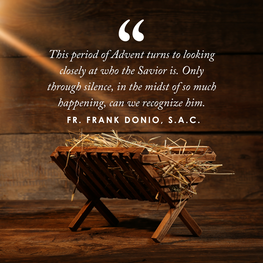 On the cusp of Christmas, our lives can be so full of doing this and that. It is usually not a time of silence and contemplation. And yet, the most famous Christmas hymn is Silent Night. It is worth considering that night that we will remember in only a few short days. This period of Advent turns to looking closely at who the Savior is. Only through silence, in the midst of so much happening, can we recognize him. Pope Francis offers us these considerations: “We can ask ourselves: What place does silence have in my days? Is it an empty, perhaps oppressive, silence? Or is it a space for listening, for prayer, for guarding my heart? Is my life sober or filled with superfluous things? Even if it means going against the tide, let us value silence, sobriety and listening. May Mary, Virgin of silence, help us to love the desert, to become credible voices who testify to her Son who is coming” (Angelus, December 10, 2023). The questions asked by Pope Francis are good ones to meditate on in these last days of Advent. Entering into listening and prayer, we can hear God’s voice more clearly. The voice of the One who comes into the world as Prince of Peace and sends us forth to testify to the world our faith in him. May the Charity of Christ urge us on! The Catholic Apostolate Center team is keeping you in special prayer during the Advent and Christmas seasons. May you have a blessed Christmas and a faith-filled New Year! In God, the Infinite Love, Fr. Frank Pope Francis eloquently writes in his post-synodal exhortation Christus Vivit, “After this brief look at the word of God, we cannot just say that young people are the future of our world. They are its present.” In the last decade, and especially since Christus Vivit was promulgated in 2019, the Church has sought to help the Church’s youth become protagonists in their own right. This is seen in many parish, diocesan, and archdiocesan initiatives to form young Church leaders. Some examples of this include creating new diocesan offices for youth and young adult ministries and the growth of many high school and collegiate campus ministry offices. Nevertheless, young people crave young role models for the Faith. Pope Francis recognized this and listed many examples, including Mary, St. Francis of Assisi, and St. Joan of Arc. In this blog, I wish to discuss three saints in particular--Bl. Carlo Acutis, St. Jose Sanchez del Rio, and St. Therese of Lisieux—and how their witnesses are a model for young people (especially youth leaders) who wish to dive deeper into a relationship with Christ and his Church. Young people everywhere crave to see an aspect of themselves in the people they look up to, and Bl. Carlo Acutis is a soon-to-be saint who allows young people to see commonalities between themselves and the saints. Carlo was a typical Italian teenager who played soccer and video games. Nevertheless, he also made great strides for God in his work, uploading Eucharistic miracles to a website to spread devotion to the Body and Blood of Christ. He was called “an influencer for God” by his mother in an America Magazine article. Bl. Carlo stands as a soon-to-be saint accessible to the Church’s youth because of his young age and his connectedness to 21st-century culture. Bl. Carlo Acutis models for youth leaders how evangelization must occur within the culture and modern media, not from an ivory tower of formal theology and scholarship. The Gospel must be spread in a way that all generations can appreciate, and Bl. Carlo accomplished that with the creation of his website. Another young person who bore witness to the Faith in the context of his own time was St. José Sánchez del Rio. Saint José was a young man growing up in Mexico during the Cristero Wars. The Cristero Wars were a series of conflicts between the Mexican President Plutarco Calles's secularist government and Cristero fighters (formally known as the National League for the Defense of Religious Liberty). The Calles government imposed the 1917 Mexican Constitution, which contained anticlerical policies and sought state atheism. Catholics across the country opposed this and began resisting through liturgical services and military resistance against the Mexican army. Saint José was a young man during the war and wanted to fight to defend his Faith. His mother, however, refused to let him formally join the Cristero Movement. This made St. José contribute to the movement indirectly and attend Mass whenever possible. Nevertheless, when a Cristero General lost his horse in battle, young José offered his, and this led to his imprisonment by the Mexican army. After being tortured to renounce his Faith, José refused and was martyred. St. José Sánchez del Rio’s witness to the Faith is one of the best examples of what a Catholic is called to do by Christ: witness the Faith within your own culture and times while not renouncing our Lord. Despite his young age, St. José believed in Christ’s love and graces, and that gave him the strength to be countercultural and stand with Jesus instead of with the popular culture and the government that stood against Him. Finally, St. Thérèse of Lisieux remains one of the most commanding forces in the Church’s lexicon for youth witnesses. Becoming a Carmelite at age fifteen, Thérèse began to pray incessantly and pioneered her famous “Little Way” for the spiritual life. St. Thérèse’s “Little Way” seeks to help people encounter Christ in their day-to-day activities and pray to Jesus with childlike dependency. St. Thérèse of Lisieux’s powerful devotion to the Eucharist, prayer, and a joyful attitude allow many to realize that one can be close to Christ no matter what they are doing. St. Thérèse stands as a strong role model for young Catholics since her relationship to Christ reached such profound depths at her young age. Young people crave role models in the Church, and older generations can find powerful witnesses and wisdom from young Catholics as well. The Church has been and must remain dedicated to telling and promoting the stories of young saints to inspire every generation to become protagonists in the Church and saints for Christ’s kingdom. Young people can be inspired by these saints since they can “…offer the Church the beauty of youth by renewing her ability to ‘rejoice with new beginnings, to give unreservedly of herself, to be renewed and to set out for ever greater accomplishments’” (Pope Francis, Christus Vivit). **This blog was originally published on August 5, 2021.**
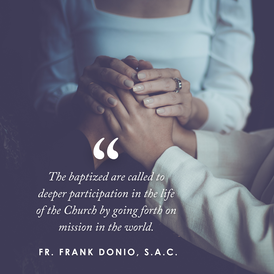 As the Church arrives at the first session of the Synod on Synodality, it is important to look at the three words associated with it – communion, participation, and mission. These are at the center of the dialogue and discernment that will occur. They are part of an ongoing reflection on the role of the baptized in the life of the Church, particularly from the Second Vatican Council onward. We are in communion with the Most Holy Trinity and each other in the Body of Christ, the Church. The baptized are called to deeper participation in the life of the Church by going forth on mission in the world. Each is co-responsible for the mission of Christ and the Church. As Pope Francis notes, “The Synod has three key words: communion, participation, and mission. Communion and mission are theological terms describing the mystery of the Church… Participation is a requirement of the faith received in baptism” (Address for the Opening of the Synod). The whole synodal process is a discernment in the Holy Spirit to examine how we as Church are on mission in the world. Have we closed ourselves off by becoming self-referential or are we moving outward as witnesses of Christ? Pope Francis is clear about what this discernment of the Synod is and is not. “I want to say again that the Synod is not a parliament or an opinion poll; the Synod is an ecclesial event and its protagonist is the Holy Spirit. If the Spirit is not present, there will be no Synod” (Address for the Opening of the Synod). We at Catholic Apostolate Center offer many resources to learn more about the upcoming first session of the Synod of Synodality, which will begin on October 4th and continue throughout the month, including a recent episode of our podcast, On Mission, with Dr. Susan Timoney, Associate Dean for Graduate Ministerial Studies in the School of Theology and Religious Studies at The Catholic University of America. Dr. Timoney gives an overview of the synodal process thus far and what is to come. It is worth taking the time to listen! Please keep all those involved in the Synod in your prayers. May the Charity of Christ urge us on! In God, the Infinite Love, Fr. Frank 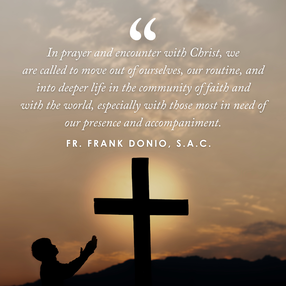 “When we become creatures of habit and grow bored, and the mission becomes a ‘job’, it is time to open our hearts to that second call of Jesus, for he never stops calling us. He calls us to make us set out; he calls us to remake us. Do not be afraid of this second call of Jesus.” - Pope Francis, Homily for Vespers with Bishops, Priests, Deacons, Consecrated Persons, Seminarians, and Pastoral Workers, World Youth Day, Lisbon, Portugal, August 2, 2023 Many people who read our newsletter engage in some type of ministry within the Church, full-time or part-time. Others engage in various types of apostolic work. All are serving the mission of Christ and the Church, each in the way in which they are called. Sometimes, as Pope Francis points out, “mission becomes a ‘job.’” We may need to recognize a “second call of Jesus.” He calls us to himself most profoundly in the Eucharist, whether at Mass or in adoration. In prayer and encounter with Christ, we are called to move out of ourselves, our routine, and into deeper life in the community of faith and with the world, especially with those most in need of our presence and accompaniment. Each of the reflections below given by seven bishops, including the President of the United States Conference of Catholic Bishops, Archbishop Timothy Broglio of the Archdiocese for the Military Services, is not simply for the time of World Youth Day. They are quite relevant to all on mission for Christ as we commit ourselves daily to living for him. We invite you to listen to them as part of your time of prayer or as you journey to others on mission. May the Charity of Christ urge us on! In Christ, Apostle of the Eternal Father, Fr. Frank This past September, a colleague and I traveled to three cities in the U.S. to discuss with local ministry leaders ways in which Catholic Relief Services (CRS) could engage young adults. Our basic question was this: How can CRS contribute to the conversations folks in their 20s and 30s are already having around issues of peace, justice, and global solidarity? Two very clear, and slightly discordant, ideas emerged. The first: folks in their 20s and 30s want to offer their time to serve those in need. The second: we as Church might do better to shift from doing good for a world in need to being good for our world. What do I mean by this? The instinct to do good—to be a service to others, to give of ourselves, to respond in charity to the Gospel invitation to love our neighbor—is something to be applauded. In fact, integrating service into young adult ministry was a priority we heard time and again during our conversations. But not all world-changing, do-good ideas are created equal. In fact, some can be quite harmful. (For one example from some of CRS’ work that illustrates this general point, check out our Changing the Way We Care initiative on orphanages.) I’m not saying we shouldn’t dedicate time, talent, and treasure to helping those in need—both in our own communities and around the world. But we should challenge ourselves to be intentional about our initiatives, to investigate the real impact of our efforts—both intended and unintended. We should also ask ourselves who we are really serving: our own sense of self-worth or the real common good. I write all this by way of reflection on Pope Francis’ calling for a World Day of the Poor, the first of an annually recurring day that begins November 19, 2017. (Click here to read about it in the pope’s own words.) When we think of poverty, our knee-jerk reaction may be to rush to the nearest shelter with old clothes in hand. It may be to donate to a worthy cause. It may be to jump on a plane and fly across the world ready and able to build a house for a family without one. None of those things are bad, right? People need and deserve clothing and shelter, and charitable donations fuel so many organizations like my own. But intentionality demands that we challenge our own assumptions. Is the local shelter looking for the kinds of clothing I’d like to give, and do they have capacity to sort through them? Does that distant country need me to build a house, or is there a local engineer who is better able to accomplish the job? Do I know what percentage of donations an organization puts toward actually helping those in need? These are questions I myself have had to wrestle with, and the answers are different in every situation. But they must be asked. Why? Because they help me remove my own ego from the situation and instead make room for the true needs—and solutions—of others. Pope Francis challenges us to go beyond the doing—which is unmistakably important—to inhabit a new way of living: “We may think of the poor simply as the beneficiaries of our occasional volunteer work, or of impromptu acts of generosity that appease our conscience. However good and useful such acts may be for making us sensitive to people’s needs and the injustices that are often their cause, they ought to lead to a true encounter with the poor and a sharing that becomes a way of life.” So, then, as we reflect on this first World Day of the Poor, I challenge all of us to not simply do good, but to be good—to integrate God’s vision for humanity not simply into our acts of charity but into our daily choices, our lifestyles, and our long-term goals. Question for Reflection: How can you follow Eric's advice and not only do good, but be good? Interested in joining CRS in conversation around these issues? Join our new initiative for folks in their 20s & 30s CROSSROADS en el camino. To learn more about Catholic Social Teaching, please click here. **This post was originally published on 11/16/2017**
Mary is known by many titles and depicted in a variety of ways. Today’s feast, the Memorial of Our Lady of Sorrows, offers us an image of a woman filled with sorrow, a grieving mother. This title reminds us that she was no stranger to suffering. Indeed, the Church contemplates seven sorrows she endured, which Pope Francis described in a homily in April 2020:
“The first, just forty days after the birth of Jesus, is Simeon's prophecy that speaks of a sword that will pierce her heart (see Lk 2:35). The second sorrow is the flight to Egypt to save her Son's life (see Mt 2:13-23). The third sorrow, those three days of anguish when the boy remained in the temple (see Lk 2:41-50). The fourth sorrow, when Our Lady meets Jesus on the way to Calvary (see Jn 19:25). The fifth sorrow of Our Lady is the death of Jesus, seeing her Son there, crucified, naked, dying. The sixth sorrow, Jesus’ descent from the cross, dead, when she takes Him in her arms as she held Him in her arms more than thirty years before in Bethlehem. The seventh sorrow is Jesus’ burial. Thus, Christian piety follows this path of Our Lady who accompanies Jesus.” Blessed Basil Moreau, who founded the Congregation of Holy Cross and dedicated the congregation to the patronage of Our Lady of Sorrows, said of her, “It is (in her sorrows) that we shall see to what extent she has loved us! She stood at the foot of the cross, among the executioners and soldiers, so close to her dying Son that no detail of his death could escape her. ‘There by the cross of Jesus stood Mary his mother’ (Jn 19:25). What did she do in this circumstance, so painful for her heart, being minister before the altar on which the sacrifice of our redemption was accomplished?” Though it must have been unbearable to behold the abuse and brutal murder of her Son, Mary did not turn away. She remained as close as possible to her Son and participated in Christ’s gift of self. When I am confronted with sorrow—either my own or that of others—I am sorely tempted to simply look away, to live in denial or numbness, or to let myself be distracted by anything else. Working through grief, facing injustice, embracing the cross is incredibly difficult. “But if we shirk the cross, gone too will be our hope. It is in fidelity to what we once pledged that we will find the dying and the rising equally assured” (Constitutions of the Congregation of Holy Cross, 8:121). Truly, the Christian life calls us not to look away but rather to have ‘a heart which sees’. This heart sees where love is needed and acts accordingly” (Deus Caritas Est, 30). Allowing ourselves to be moved by suffering, acting and trusting that suffering can and will be transfigured by God’s grace is not weakness. In fact, as Pope Francis described in his Lenten message for 2015, “Anyone who wishes to be merciful must have a strong and steadfast heart, closed to the tempter but open to God. A heart which lets itself be pierced by the Spirit so as to bring love along the roads that lead to our brothers and sisters.” When we remain as close as possible to Christ and allow our hearts to see as Mary did, we find new strength. In the pierced heart of the Sorrowful Virgin, we find consolation, refuge, and tenderness. We find a mother who can truly empathize, who embraces our wounds with her gentle touch, just as she embraced the bruised and broken body of her Son. May our tears mingled with Mary’s be a worthy offering of love. May we, like Mary, cultivate a heart that sees, a heart which is firm and merciful, attentive and generous, and bears pain and sorrow well, “with strength, with tears” (Pope Francis, homily, April 2020). May we make our own the words of today’s sequence (also known as the Stabat Mater and used frequently in the recitation of the Stations of the Cross): O sweet Mother! font of love, Touch my spirit from above, Make my heart with yours accord. Make me feel as you have felt; Make my soul to glow and melt With the love of Christ, my Lord. “And so I say to you, you are Peter, and upon this rock I will build my church, and the gates of the netherworld shall not prevail against it.” -Matthew 16:18 Today, the Church celebrates the Feast of the Chair of St. Peter. While there is an actual chair of St. Peter, the feast doesn’t commemorate the physical chair which is suspended on the back wall of St. Peter’s Basilica above the Altar of the Chair. That chair is said, by tradition, to have belonged to St. Peter when he was Bishop of Rome. The famous Baroque artist Gian Lorenzo Bernini enclosed the original chair in gilded bronze in the mid-17th century and it now sits beneath the famous stained glass of the Holy Spirit in St. Peter’s. No, today’s feast doesn’t commemorate that specific chair, but the Pontificate itself, that “Christ the Lord… made Peter and his successors His vicars, to exercise for ever in the Church the power which He exercised during His mortal life,” (Statis Cognitum). As we read in the passage from the Gospel of Matthew, Jesus Christ has not only built his Church upon Peter, and his successors, but has promised us that the gates of Hell will not prevail against her. The pontificate, as Pope Leo XIII says in Satis Cognitum, is a beautiful expression of the Church’s unity. The Successor of St. Peter is not meant to, in any way, supersede our Lord Jesus Christ, but is an expression of his Kingship which is eternal: The nature of this supreme authority, which all Christians are bound to obey, can be ascertained only by finding out what was the evident and positive will of Christ. Certainly Christ is a King for ever; and though invisible, He continues unto the end of time to govern and guard His church from Heaven. But since He willed that His kingdom should be visible He was obliged, when He ascended into Heaven, to designate a vice-gerent on earth. It is in the successors of Peter that this authority given to Peter himself continues in the life of the Church. “It is consequently the office of St. Peter to support the Church, and to guard it in all its strength and indestructible unity.” This feast is not only a beautiful opportunity to celebrate the pontificate as a manifestation of Christ’s kingship in our Church and a supreme example of unity amongst the Christian people, but it’s also an opportunity to celebrate and pray for our current pope! Pope Francis continues his Petrine ministry, nine years after his election in 2013. The Holy Father has provided a refreshing pastoral vision for the Church, from top down, that focuses on mercy, compassion, and radiating the love of Jesus Christ. He has asked all of us, clergy and lay, to reflect upon, discern, and act on our Universal Call to Holiness and our vocation as Missionary Disciples. This word alone, a product of Pope Francis’ cornerstone document of his pontificate, Evangelii Gaudium, calls us out of a purely inward-looking faith that seeks personal growth in holiness devoid of evangelization and leads the baptized to reflect upon our baptismal call to be missionaries commissioned to share the Good News! On this Feast of the Chair of St. Peter, let us ask those Holy Roman Pontiffs who intercede for us in heaven to pray for the Church and her unity, and let us pray for Pope Francis as well—that his ministry may continue to unite the Church and always reflect the kingship of Christ which is made manifest most clearly in our weakness, vulnerability, and service. To learn more about Pope Francis and his pontificate, please visit our Pope Francis Portal.
One of the greatest gifts of Pope Francis’s pontificate is our pope’s willingness to write and speak about the day-to-day realities of many people everywhere. However, there is one experience which Pope Francis writes about that resonates with me most strikingly as a young adult and young professional: anxiety. And, according to the National Alliance on Mental Illness (NAMI), I am probably not the only person with whom Pope Francis’s words resonate. In 2020, an estimated 48 million people experienced an anxiety disorder. Anxiety and anxiety disorders exist on a spectrum, ranging from mild interference with professional, relational, and/or other aspects of a person’s life, to causing major difficulties performing basic functions of human life. In other words, anxiety can look like worrying about an upcoming meeting to the extent that it causes racing thoughts and accelerated heartbeat or it can look like a debilitating fear that causes avoidance of daily plans and activities altogether. So, what does Pope Francis have to say about this wide-ranging experience that shows up in the lives of so many? In his 2018 Apostolic Exhortation, Gaudete et Exsultate, Pope Francis sees anxiety as something that can cause us to act for the wrong reasons: “Needless to say, anything done out of anxiety, pride or the need to impress others will not lead to holiness. We are challenged to show our commitment in such a way that everything we do has evangelical meaning and identifies us all the more with Jesus Christ.” Here, Pope Francis identifies that the worries, racing thoughts, and fears can thwart our best judgment and right intentions. Experiencing anxiety can cause us to miss the mark in our perceptions of others, ourselves, or certain situations. Rather than coming from a place of a collected and balanced mindset, we may be influenced by anxiety to choose to act out of fear or worry. In his 2013 Apostolic Exhortation, Evangelii Gaudium, Pope Francis shares a similar sentiment. When describing the patience and time it takes to promote the common good of a society in paragraph 223, our pope encourages, “What we need, then, is to give priority to actions which generate new processes in society and engage other persons and groups who can develop them to the point where they bear fruit in significant historical events. Without anxiety, but with clear convictions and tenacity.” Here, Pope Francis follows a similar thought to Gaudete et Exsultate: anxiety clouds our judgment and perceptions—preventing us from taking clear steps forward in difficult situations or relationship challenges. Perhaps Pope Francis’s punchiest paragraph on anxiety comes from Christus Vivit. In paragraph 142, he cautions young people and the entire church in falling prey to the fear and paralysis that comes from anxiety: “Keep following your hopes and dreams. But be careful about one temptation that can hold us back. It is anxiety. Anxiety can work against us by making us give up whenever we do not see instant results. Our best dreams are only attained through hope, patience and commitment, and not in haste. At the same time, we should not be hesitant, afraid to take chances or make mistakes. Avoid the paralysis of the living dead, who have no life because they are afraid to take risks, to make mistakes or to persevere in their commitments. Even if you make mistakes, you can always get up and start over, for no one has the right to rob you of hope.” Here, Pope Francis highlights how anxiety can prevent us from moving forward. How often are we afraid to pick up the phone and call a friend that we haven’t spoken to in a while because we are anxious about what to say? Or how many times have we put off a difficult conversation because we are fearful about how it might change our relationship with the other person with whom we speak? How many times have we passed up applying for that school, a certain job, or taking on a particular project because we are afraid that our abilities wouldn’t measure up? For Pope Francis, many of these situations have anxiety at their root. So, what can we make of how Pope Francis writes about anxiety? For our pope, anxiety is a difficult and challenging issue. Though Pope Francis mentions anxiety can affect a person’s life negatively, notice that he never mentions anxiety as sinful. Like other health and mental health conditions and experiences, anxiety itself is not a sin and is not a punishment for sin, but rather comes from our imperfect human nature. What Pope Francis does hint at, though, is that learning to live with anxiety contributes to our holiness. How does learning to live with anxiety contribute to our growth in holiness? Learning to manage our anxiety—whether through a relationship with a licensed therapist, medication, self-care practices, or other means of support—allows us to live out our calling to holiness more freely and generously. Anxiety causes us to make decisions, act, and cope with the situations of life out of worry, nervousness, and fear. Managing our anxiety allows us to learn to live more mindfully and intentionally, gain insight into what is causing our fear and worry, and make choices to act from a place of balance and discernment. In other words, instead of being paralyzed by anxiety, learning to manage it allows us to respond to others and situations in our lives more thoughtfully—seeing them not as threats or reasons to make judgments out of fear, but opportunities for us to be drawn out of ourselves, despite our nervousness or fear. If holiness means to set apart our lives for God’s action and living out our mission, our experience of anxiety can be a part of our vocation to holiness as we see it as an opportunity to grow, become more generous, place our trust in God, and challenge our fears. As Pope Francis encourages us in paragraph 143 of Christus Vivit, “Take risks, even if it means making mistakes. Don’t go through life anesthetized or approach the world like tourists. Make a ruckus! Cast out the fears that paralyze you, so that you don’t become young mummies.”
When you ask someone which of Pope Francis’ writings they think of first, you’re likely to hear Evangelii Gaudium, maybe Christus Vivit if you’re talking to someone in youth or young adult ministry, Laudato Si if the person is particularly environmentally conscious, or Amoris Laetitia for those who work in family ministry. The two that, by my estimation, might be least likely to be mentioned are Lumen Fidei (which was Pope Francis’ first papal document and was written by both he and Pope Emeritus Benedict XVI) and his Apostolic Exhortation Gaudete et Exsultate. This is a real tragedy because Gaudete et Exsultate might be one of the most important writings in Pope Francis’ pontificate, though I know that since I’ve said this, he’ll write something even better. Recently, the Church has celebrated the Solemnity of All Saints and the Commemoration of All Souls. On All Souls Day, the Church prays for all of the faithful departed, for the souls in Purgatory who will, one day, be welcomed into the Eternal Banquet. The Solemnity of All Saints celebrates all of the Saints in Heaven, both those great saints who are venerated in churches across the world, and those “saints next door”. In Gaudete et Exsultate, Pope Francis writes, “very often it is a holiness found in our next-door neighbours, those who, living in our midst, reflect God’s presence… Let us be spurred on by the signs of holiness that the Lord shows us through the humblest members of that people which ‘shares also in Christ’s prophetic office, spreading abroad a living witness to him, especially by means of a life of faith and charity’.” He reminds us that holiness is not just for those who are called to do great things, but by all of those who live a life of faith and who are followers of Jesus. We often see prominent Catholics telling us to “do great things”. They get this from Pope St. John Paul II who said to young people at World Youth Day in 2000, “It is Jesus who stirs in you the desire to do something great with your lives, the will to follow an ideal, the refusal to allow yourselves to be grounded down by mediocrity, the courage to commit yourselves humbly and patiently to improving yourselves and society, making the world more human and more fraternal.” And the great Saint has a point: when the world leads us to such mediocrity, a mediocrity which leads us to individualism, relativism, and complacency, the Lord Jesus leads us to greatness. What I think can be lost in translation, at times, is that this greatness is not worldly greatness. This greatness which Pope St. John Paul II spoke of is the greatness that a life of faithful missionary discipleship can bring. Greatness that is marked by hope, by a rich and abounding charity towards our neighbor, by a gentleness that comes from resting in eternal truth, and by a trajectory that always moves, as Bl. Pier Giorgio Frassati would say, “verso l’alto”, or “to the heights.” In Gaudete et Exsultate, Pope Francis leads the People of God on this journey to greatness which, when properly viewed, is indeed the journey to holiness. He reminds us that the Scriptures give us regular calls to holiness, a theology which was explored and articulated more deeply and precisely at the Second Vatican Council. He reminds us that, “This holiness to which the Lord calls you will grow through small gestures,” in a way echoing the words of St. Teresa of Calcutta who said, “not all of us can do great things, but we can do small things with great love.” Maybe this is the greatness which Pope St. John Paul II was speaking about to those young people over two decades ago. Not greatness which is pursued for any individual person’s gain, but great love. Love which seeks to echo the love of Jesus Christ on the Cross, love that wills the good of the other. This love is articulated in the Beatitudes, which Pope Francis calls “the Christian’s identity card.” Pope Francis gives us a deep and insightful document in Gaudete et Exsultate. He gives us cause to reflect on our lives and on the holiness which the Lord calls us to. He reminds us that we can’t do the Christian life alone and that our living of that life will make us counter cultural. We should find great cause for hope in Gaudete et Exsultate. In the words of Pope Francis, may we, “ask the Holy Spirit to pour out upon us a fervent longing to be saints for God’s greater glory, and let us encourage one another in this effort. In this way, we will share a happiness that the world will not be able to take from us.” For more resources on Pope Francis, click here for our Pope Francis Portal. For more resources on Gaudete et Exsultate, click here for our resource page.
|
Details
Archives
July 2024
Categories
All
|
About |
Media |
© COPYRIGHT 2024 | ALL RIGHTS RESERVED



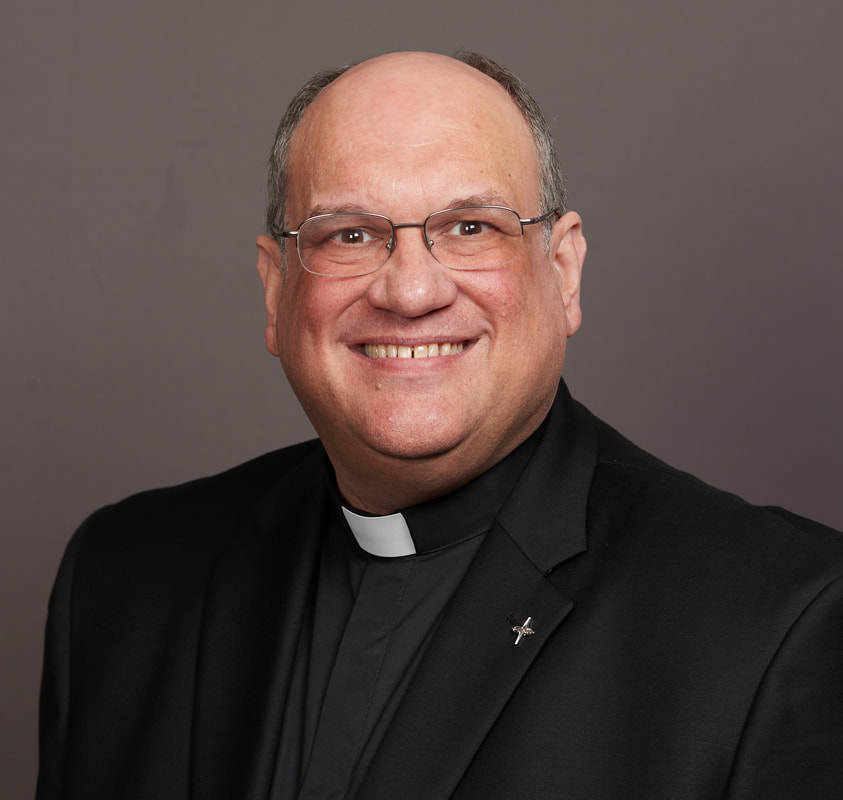


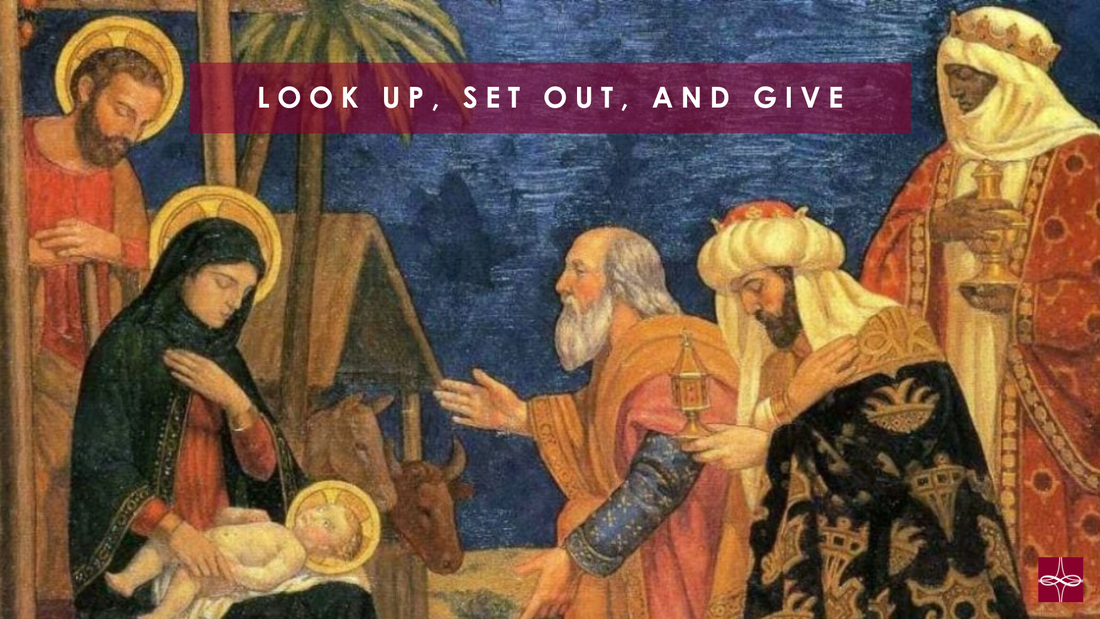


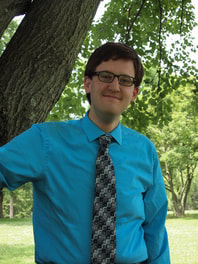


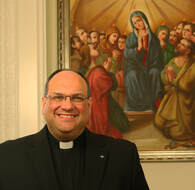
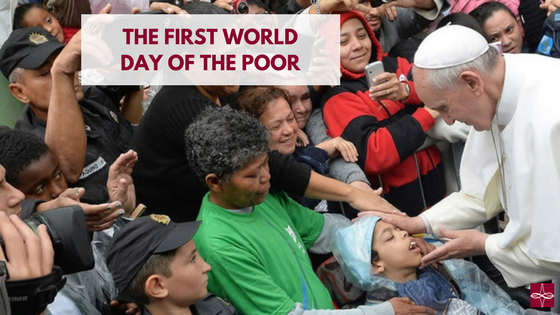

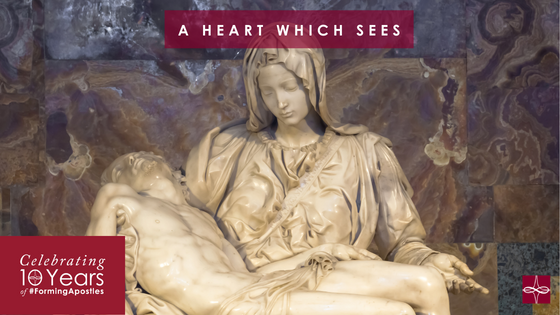

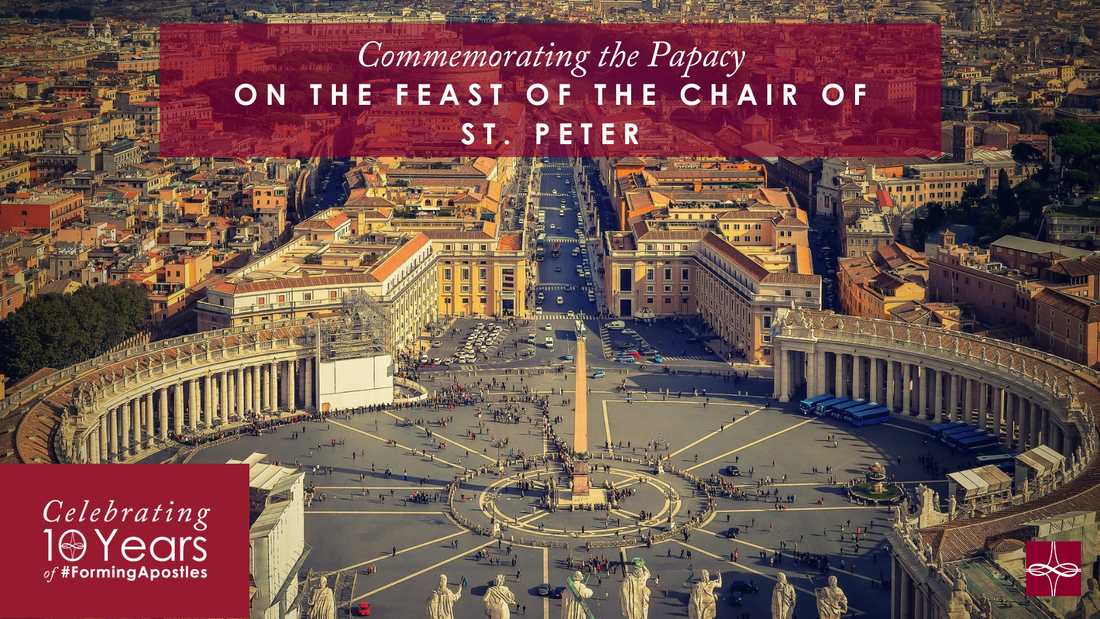
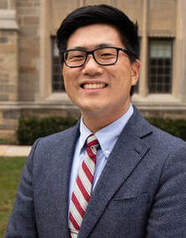
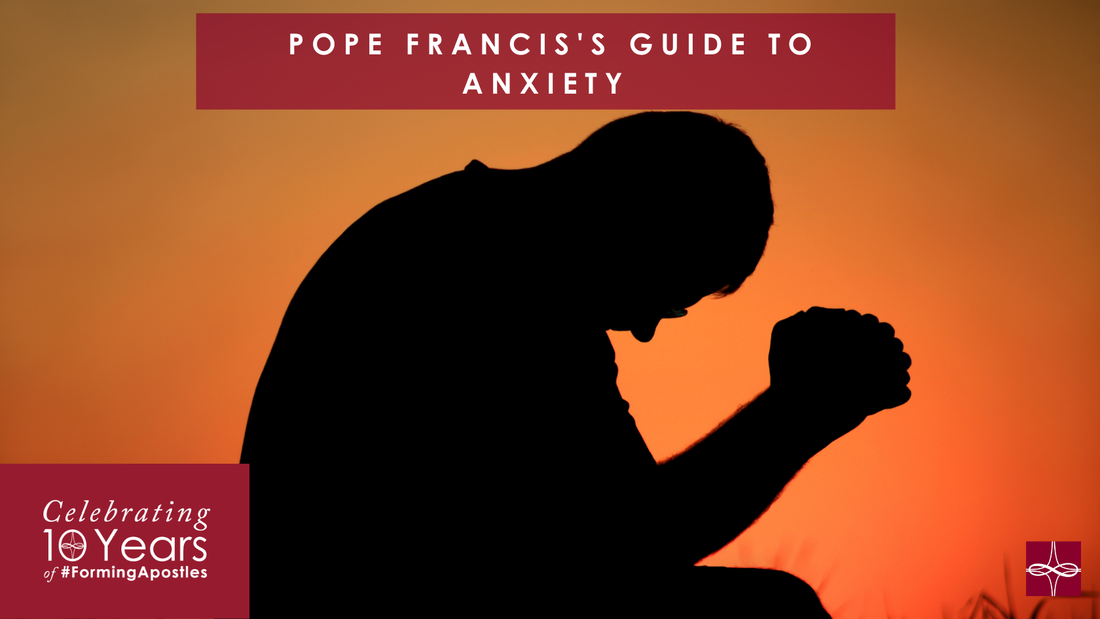
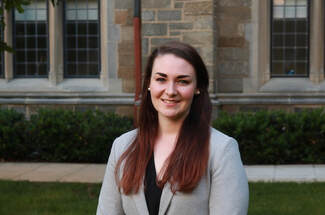
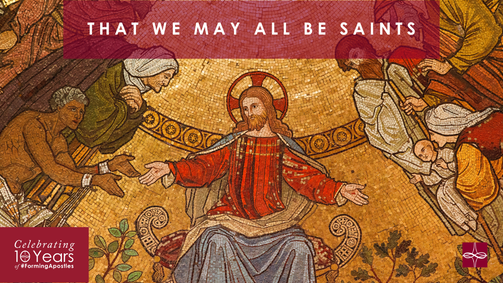
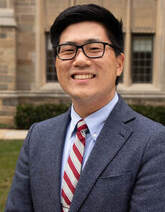
 RSS Feed
RSS Feed